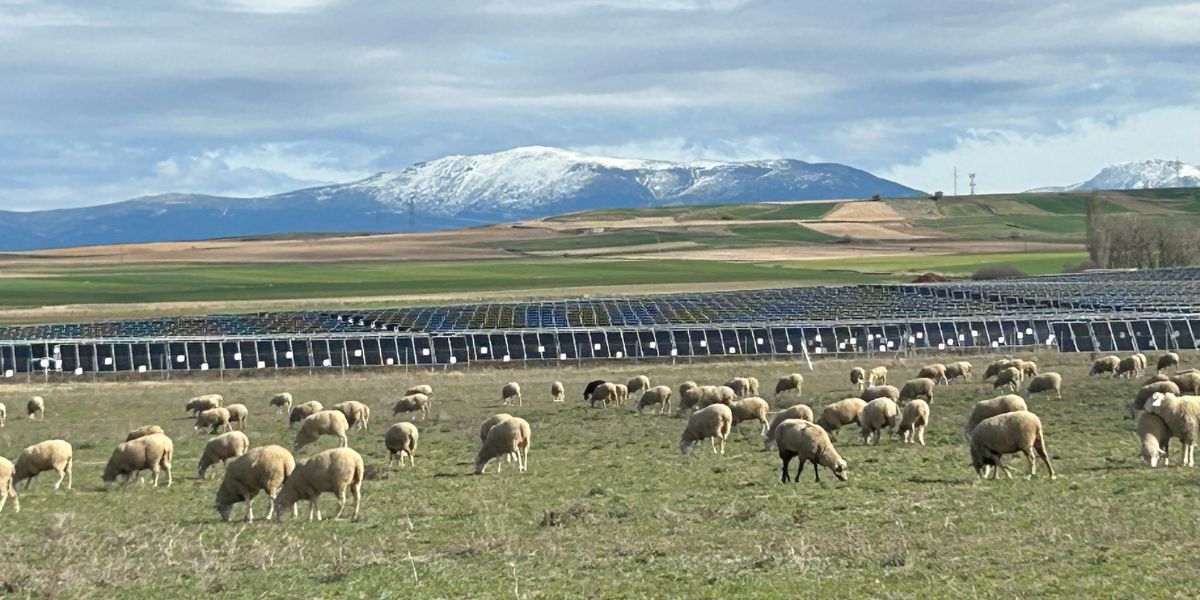German know-how in renewable technology and agrivoltaics could soon be arriving in Deepwater if a 120MW solar farm and battery storage project gets the green light.
The proposed Deepwater Hybrid Solar Farm will combine up to 240,000 solar panels and a 120MW battery storage system with sheep grazing on a generational farming enterprise.
German solar developer ib vogt is now deep into the state governments streamlined secretary’s environmental assessment requirements (SEARs) and winning over the small Deepwater community.
The project’s senior development manager, Terry Daly, hosted three community meetings this month and pledged to pay for upgrades to the Deepwater School of Arts of Hall as part of a community benefits fund.

Mr Daly said the State Significant Development (SSD) project would be spread across three farms all owned by the one family for more than 100 years.
Mr Daly said no additional transmission lines will be required to support the project, which eliminates some of angst associated with large scale renewable projects.
“One of the main reasons we have targeted this land is that there is a transmission line running through the middle of it,” Mr Daly said.
“It is also fairly flat land, there is no need to remove any native vegetation, and it is used for grazing sheep. We can co-exist quite successfully with sheep. Goats tend to climb all over the panels and cattle are too big and more likely to cause damage.”
“There are some people in the community who are uncomfortable with the project, but I have been able dispel some of the myths like the potential loss of prime agricultural land.”
Mr Daly said the company has had experience with combining sheep grazing with solar power generation in Germany and France.
“Agrivoltaic projects are strongly encouraged in Europe to protect valuable agricultural land. That’s what we want to do at Deepwater and it addresses community concerns about the loss of farming land.”
“We would not guarantee that it increases sheep productivity, but there is evidence out there that it can improve when good grazing management is combined with solar panels.”
Mr Daly said they have engaged with landowners for the past 18 months on project design, minimal interruption to grazing practices and decommissioning of the project at the end of a 30-year lease.
“At maximum tilt, the solar panels will still be 500mm off the ground. We have also discussed rotational grazing practices to keep grass levels down and we have offered to construct more internal fencing.”
“There will be a security fence around the entire project, which will also act as an exclusion fence for predators.”
“This is the most advanced of agrivoltaic projects in Australia, with others underway in Victoria and Tasmania.”
Mr Daley said ecologists have dictated how the project will also co-exist with the local environment through protecting waterways and maintaining individual paddock trees.
“The battery and substation are not the prettiest things, so we are ensuring that it will not be visible from the highway or homesteads. There will be landscaping done along the southern and northern borders of the site and along the highway to further reduce the visual impact.”
Some community members were unsettled about increased bushfire risk, which Mr Daly said were “completely valid concerns”.
“There will be a large water tank on site, along with firefighting equipment, and each container for the battery has its own fire suppression system. The specifications will be dictated by the Rural Fire Service and Fire and Rescue NSW.”
Mr Daly predicts construction on the Deepwater project will not start until mid 2027. The project is not included in the New England Renewable Energy Zone (REZ) despite sitting just within the REZ’s northern boundary.
Deepwater running on a high
A nearby hybrid solar farm will only magnify the positive vibes that have emanated from the Deepwater village since 2020.
That’s according to resident and secretary of the Deepwater Progress Association, Tricia Stack, who has been facilitating initial consultation meetings with ib vogt.
“Local residents have had many questions to ask about the project and expressed a range of views. There has been some opposition, with specific concerns including the visual impact, fire risk and how the project would be funded,” Tricia said.
“I believe the project will be a good thing for Deepwater, and I think the majority of the Deepwater community are ok with the project.”
“Ib vogt want quotes for community projects that they can support. We need things done on the hall particularly, so we have started working on that. We need the back landing replaced and a new roof.”
Tricia is excited about the project’s local employment opportunities for a small but increasing population in Deepwater. Ib vogt says the project would employ as many as 130 people during the peak period of construction, and up to 10-12 staff once completed.

Tricia said the Covid pandemic and 2022 Northern Rivers floods led to a swelling of the local population.
“People came here because it was cheaper and have been moving in left, right and centre and new dwellings have been built.”
“I just know this too because you must be a lot more careful now driving around town because it can get so busy. I have been on the Progress Association for 16 years it’s never been busier.”
“The brewery has been very successful, and the diner is fabulous with a 50s style cafe experience. There is a local jewelry maker and the bakery is doing well.
The Progress Association is now also seeking to revitalise the Deepwater Railway Station building into a museum and visitor centre.
Tricia said Deepwater has also become a popular stop off on the New England Highway for caravanners with its two pubs and the popular Deepwater Brewery.
Don’t miss any of the important stories from around the region. Subscribe to our email list.

